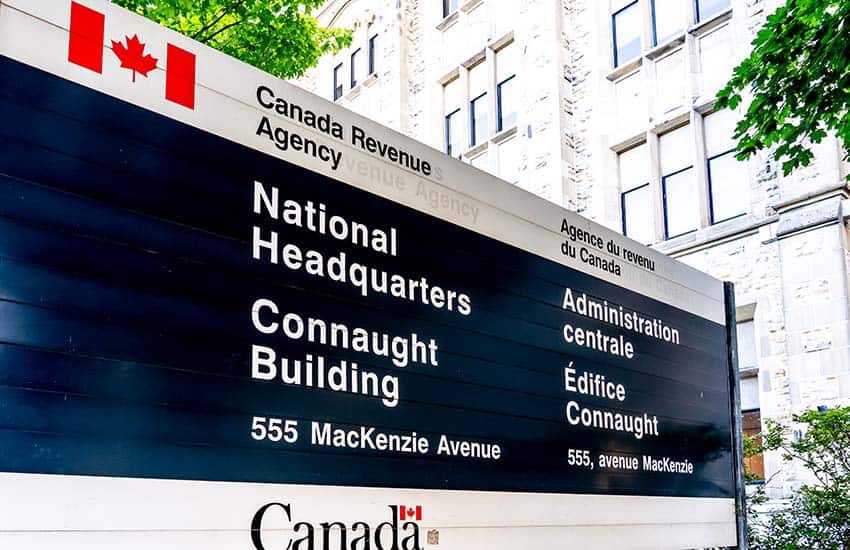If you come to Mexico as a digital nomad, there may be some surprises in store for you about taxes.
Unlike in more than 50 countries, Mexico does not have a “digital nomad” visa; however, there are laws and regulations that apply as a foreign tourist and/or resident.

Mexican immigration and the SAT (the federal tax collection agency) are still pretty much stuck in a pre-remote-work paradigm despite recent political and social controversies surrounding the growing numbers of foreigners “visiting” or “living in” Mexico while working for foreign companies online, says Maurico Peña of Outbound Mexico, a legal firm that specializes in advising younger digital nomads in Mexico.
Mexico is no stranger to foreigners. Aside from the millions of tourists that come each year, there have been significant waves of mostly Americans who have created famous retirement enclaves.
But this has not necessarily translated into easy acceptance of younger digital nomads, whose income, like that of foreign retirees, is mostly or entirely derived from non-Mexican sources. Digital nomads’ recent visibility has raised questions about whether they should be paying (more) Mexican taxes based on that income.
Digital nomads may assume that if their income is completely from foreign sources, they are under no obligations to Mexican tax authorities; that may or may not be true.

Although many other countries have “digital nomad visas,” Peña does not think they are needed here.
“Mexican immigration law is very flexible as far as time you can stay, if you are an American… up to six months as a tourist,” he says.
He adds that most digital nomads stay only a few months and that the government right now is not particularly concerned with this type of “tourist.” But redefining what it means to “work in Mexico” might cause problems for those who do business while they are supposedly vacationing on the beach.
So basically, if you are here less than six months and have no “vital interests” in Mexico, like a business or investments, you are pretty much off the hook.
However, you do have an obligation if the SAT determines that you are a “tax resident,” which they determine by the time you’ve spent in Mexico (no matter the immigration status) and, more importantly, if and how your economic activity relates to Mexico.
According to Peña and Casey Leonard of Mexico Transitional Services, most digital nomads in Mexico are employees of U.S. firms. The two countries have a treaty to avoid U.S and Mexican citizens’ income from being “double taxed.”

Since these Americans pay Uncle Sam, they do not owe Mexico, but they are required to report that income to the SAT. (The same holds true for retiree income, by the way).
Compliance is a different issue.
Leonard states that most of her clients declare themselves self-employed to immigration because current immigration rules require applicants who declare themselves an employee to provide a letter stating that their job is secure for at least a year — something that just about no U.S. company will do.
But this white lie isn’t a problem, Leonard says, as “…all immigration really cares about is the financials, which can be proven by bank statements.”
On the other hand, foreign income may not actually be foreign. Leonard has a client whose income is from freelancing gigs through Upwork, but since that company has an office in Mexico, there is a dispute about the withholding of Mexican taxes.
Things get trickier if you are not a U.S. citizen. Canada has a mutual tax treaty with Mexico, but Peña says that it is “more favorable to Mexico” than the U.S. one.

“Many non-American digital nomads are in legal limbo because the laws in Mexico and their home countries have not caught up with the times.”
SAT must rely on digital nomads to provide financial information since the Mexican government’s ability to get or even verify such information is quite limited. Mexico cannot force the nomads’ foreign employers or banks to provide financial information. Many digital nomads simply do not report their foreign income, but if they would not owe Mexican taxes anyway, they are likely not to be hassled simply for not reporting.
Another complicating factor is being self-employed with unstable income streams from various countries. Mexico and many other countries have contemplated tax laws for “the big guys” in this situation, says Peña, but not individual freelancers.
Last but not least is the infamous tendency for Mexican offices and bureaucrats applying laws/regulations differently. Leonard says that even though all temporary and permanent residents are required to have RFC (a tax ID number), foreigners often have to tell another white lie (a car or house purchase) to convince the officials to do the paperwork.
All this, of course, does not mean that you should avoid reporting and payment of Mexican taxes. On the one hand, it is vital to know your status with the SAT, as well as your immigration status.
Also, Peña says, if you do have significant or complicated income, you can work with an accountant (perhaps a lawyer too) to keep any taxes you may owe low.
“Mexico is not a tax haven like the Cayman Islands, but it is competitive, [and it’s] even possible to pay fewer taxes for certain foreigners than in their home country.”
Neither Leonard nor Peña see any significant changes related to digital nomads coming in the near future. President López Obrador’s term is coming to an end, so nothing is forthcoming at least until 2025.
Even then, any changes will be difficult as Mexico needs to balance making the country attractive to foreigners who can spend money here with the concerns of Mexican citizens. Peña’s message for those currently enjoying tax loopholes: “Congratulations… I think the party will last for a couple of more years.”
But there are indications that there will be change eventually. SAT does have an official English-language website. Mandatory RFC numbers and the digitalization of the reporting system gives SAT tools to monitor foreigners’ financial transactions. (Whether immigration will follow along in modernization, and the two agencies will communicate remains to be seen.)
Overall, both Peña and Leonard continue to see Mexico as financially promising for foreigners of all kinds. For those looking to stay for a significant amount of time, however, it’s worthwhile to at least consult with an accountant to avoid problems and keep an eye on legal and political developments.
Leigh Thelmadatter arrived in Mexico over 20 years ago and fell in love with the land and the culture in particular its handcrafts and art. She is the author of Mexican Cartonería: Paper, Paste and Fiesta (Schiffer 2019). Her culture column appears regularly on Mexico News Daily.
